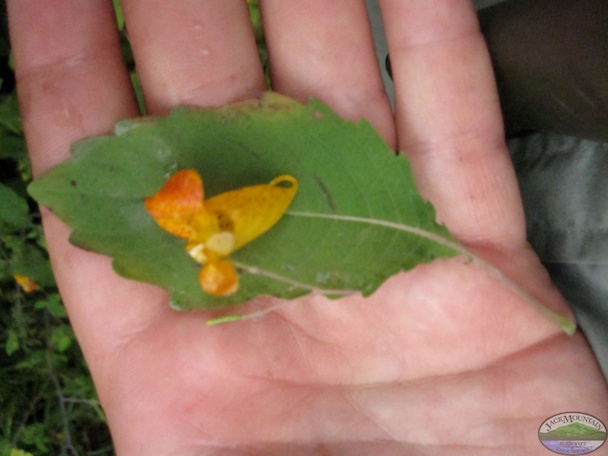There is a difference between knowing something for yourself versus having read it or heard it. That difference is characterized by experience and results, not faith and information. During the early weeks of the fall Wilderness Bushcraft Semester we do a lot of work with plants. As we traverse the landscape of Aroostook County, we identify and either press or photograph various species of wild plants, focusing on those we can use for something specific. As we idenfiy new plants, I encourage people to taste them, smell them, feel the texture of the leaves; to involve as many senses as possible. I’ve found it helps people to learn and remember, and takes it from an abstract exercise to something tangible and visceral.
Our focus in the early part of the course is on available wild foods. If I’ve used the specific plant in question for a number of years it’s something I feel I can speak on with authority . If I’ve eaten it and derived some nutrition and pleasure (or displeasure, in some cases) as a result, I’m confident in passing this along. I make a sharp distinction, though, when I don’t have personal experience, especially with medicinal properties.
Yesterday on our walk we identified balsam fir, and after talking about how it can be made into a tea that is good, but somewhat of an acquired taste, I talked about how the sap is great for small cuts and burns. I know this because I’ve used it on numerous occasions, as well as watched it’s result on other people. I know this to be true.
A while later, we identified St. John’s Wort, which was thrust into the public eye a few years back for it’s history of treating depression. When responding to a question about it’s uses I mentioned this, but was quick to point out that I had read this but had no experience with it and couldn’t verify that it worked or didn’t work.
As an instructor, my goal is to teach what I know and have experienced, not what I’ve read or think to be true. I’m happy to present that information, but I make a point of communicating that I haven’t experienced it for myself. This level of honesty is important because it builds trust, which is fundamental in the relationship between student and instructor.








